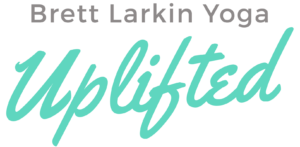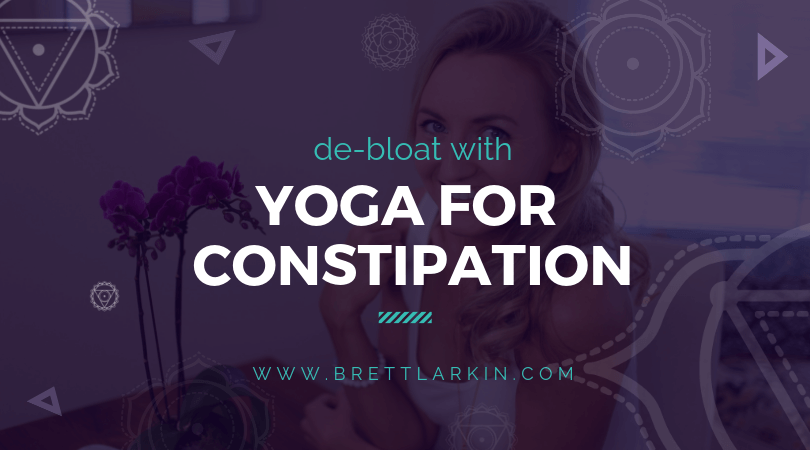
How often do you make it a point to talk to your local yoga teacher about your infrequent bowel movements and fiber intake?
Do you enthusiastically skip into hatha yoga class to have a chat in between dog pose about your latest poo? (What, am I the only one that brings up my bowel movements whenever I can?)
Chances are that you’re not. But maybe you should.
It turns out that yoga and our digestive issues, bowel movements, and lack thereof are closely related. Relieving constipation and yoga postures go together like yin and yang.
Breathing in and breathing out.
Upward facing dog and downward facing dog.
According to the National Institute of Diabetes and Digestive and Kidney Diseases, 16 out of 100 American adults have symptoms of constipation.
If you’re not totally shocked by this, then let’s put it this way: that’s a whopping 52 million people who are constipated on a regular basis.
Fifty. Two. MILLION.
Maybe you’re one of them.
Infrequent bowel movements or constipation is essentially the definition of having hard, dry stool that gets stuck in the colon. If you’re not sure whether or not this applies to you, then think about how you feel. Most people with constipation experience pain, bloating, and diet anxiety.
Yeah, constipation blows.
It all starts with peristalsis, a wave-like muscle contraction that helps to move along water and solids through the digestive tract. It is the anchor behind healthy digestion and a relaxed pelvic floor. When peristalsis slows, an intra-abdominal pressure begins to build, causing at first an annoying discomfort (aka ‘food baby’) that eventually turns into abdominal pain until you can relieve yourself.
If you experience persistent symptoms of peristalsis, then chronic constipation may be an issue for you over the long-term.
Don’t panic, though. There are ways to tackle this head on (yoga being one of them).
Before we get into the poses, though, it’s important to understand exactly what is causing constipation in your body.
What Causes Constipation, Anyway?
Constipation is the result of eating unhealthy foods, having a low fiber intake, minimal water intake, and a general stressful lifestyle. After all, if your body is stressed, then it’s not going to focus on digestion so much as putting its energy into the stress.
So the easiest and most effective way to relieve constipation is to just be healthy!
The problem is that it also sneaks its way into certain people more than others. Chances of constipation increase for those who just gave birth, for example, or are already suffering from digestive issues and digestive diseases.
What Relieves Constipation?
So what exactly is the best way to find relief from all those abdominal aches and pains that come with constipation? Grab yourself some fruits and veggies, gulp down some water, find some stress relief, and roll out your mat and give your body the natural healing medicine of movement.
Proper Diet
Getting plenty of natural fiber and water is extremely important when it comes to natural flow in the bathroom. The fiber pulls all of the gunk inside your intestines out as it passes through, acting like an all-natural broom that sweeps your intestinal walls. Water helps loosen the gunk enough so that it can pass through more easily. If you think you’re drinking enough water but you’re constipated then try drinking more water.
Stress Relief
If you haven’t heard yet, hatha yoga is the ultimate helping hand in taking some weight off the mind, body, and bloated belly. Like a squatty potty, asanas such as a seated forward bend, dog pose, or plow pose help stimulate the blood flow while compressing any abdominal pain. Pranayama & meditation both draw focus away from the stress in the body while helping to move the blocked issues along.
Self-Massage
Another way yoga helps to relieve chronic constipation is by rewarding the internal organs with an internal self-massage. Just like our exterior, our internal organs feel revived and restored after certain yoga postures stimulate our internal organs and aid elimination through intra-abdominal pressure. Take a deep breath and give an attempt at some of the following movements for both body and breath.
Top 7 Yoga Poses For Constipation
Ready to give it a go, a final push, a little inner-lubrication to get things flowing in the bathroom, once and for all? Then try to incorporate these seven poses into your yoga routine to help support your organs with the process of elimination. Your organs will thank you.
1. Revolved Chair – Parivritta Utkatasana
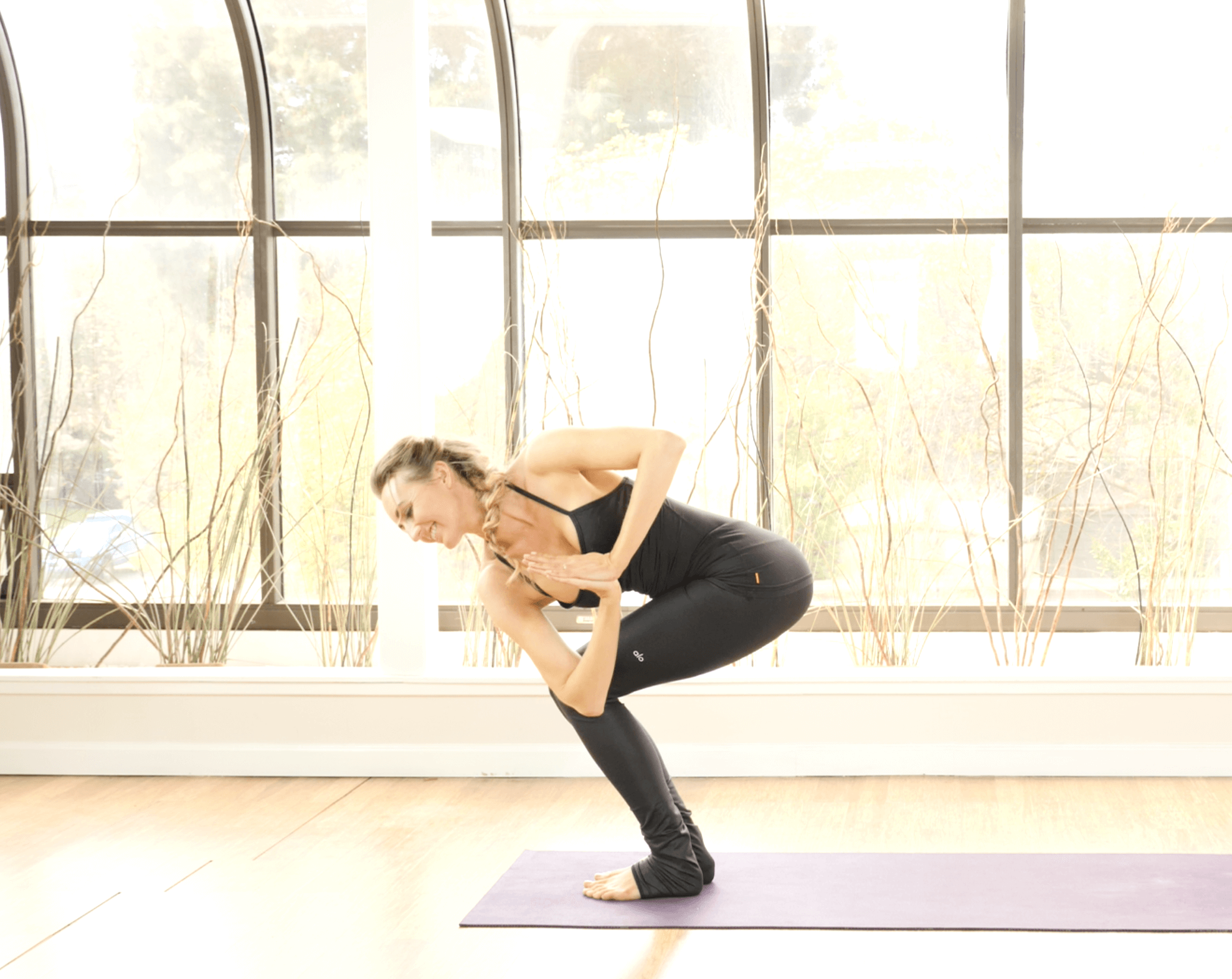
Begin in mountain pose with your feet firm. Sink your hips and thighs, into chair pose. Tilt your pelvis forward. Lift your chest & arms. Draw your hands to heart center. Inhale & lengthen the spine. Exhale & draw your right elbow to the outside of your left knee. Keep your left arm pointing up, while you steady the bend in your knees. Let the blood flow back into the arms, and repeat on the other side.
2. Child’s Pose – Balasana
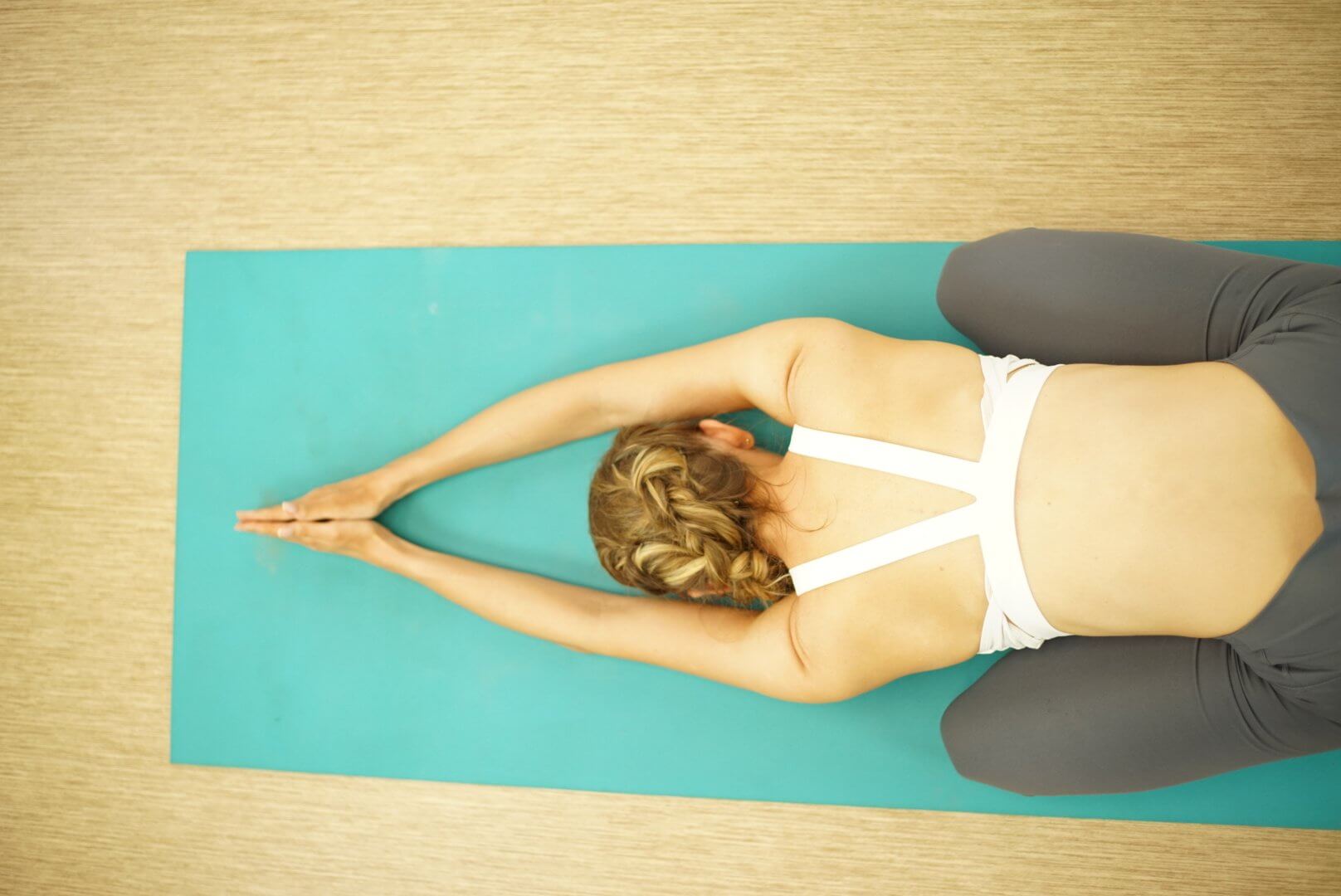
From a seated posture begin to shift your hips towards your heels. Draw your knees as wide as the mat. Lengthen your left arm and right arm out in front of you. Rest your belly in between your thighs. Press the forehead into the mat & breathe. When finished press the hands down and lift into downward facing.
3. Buddha squat – Malasana
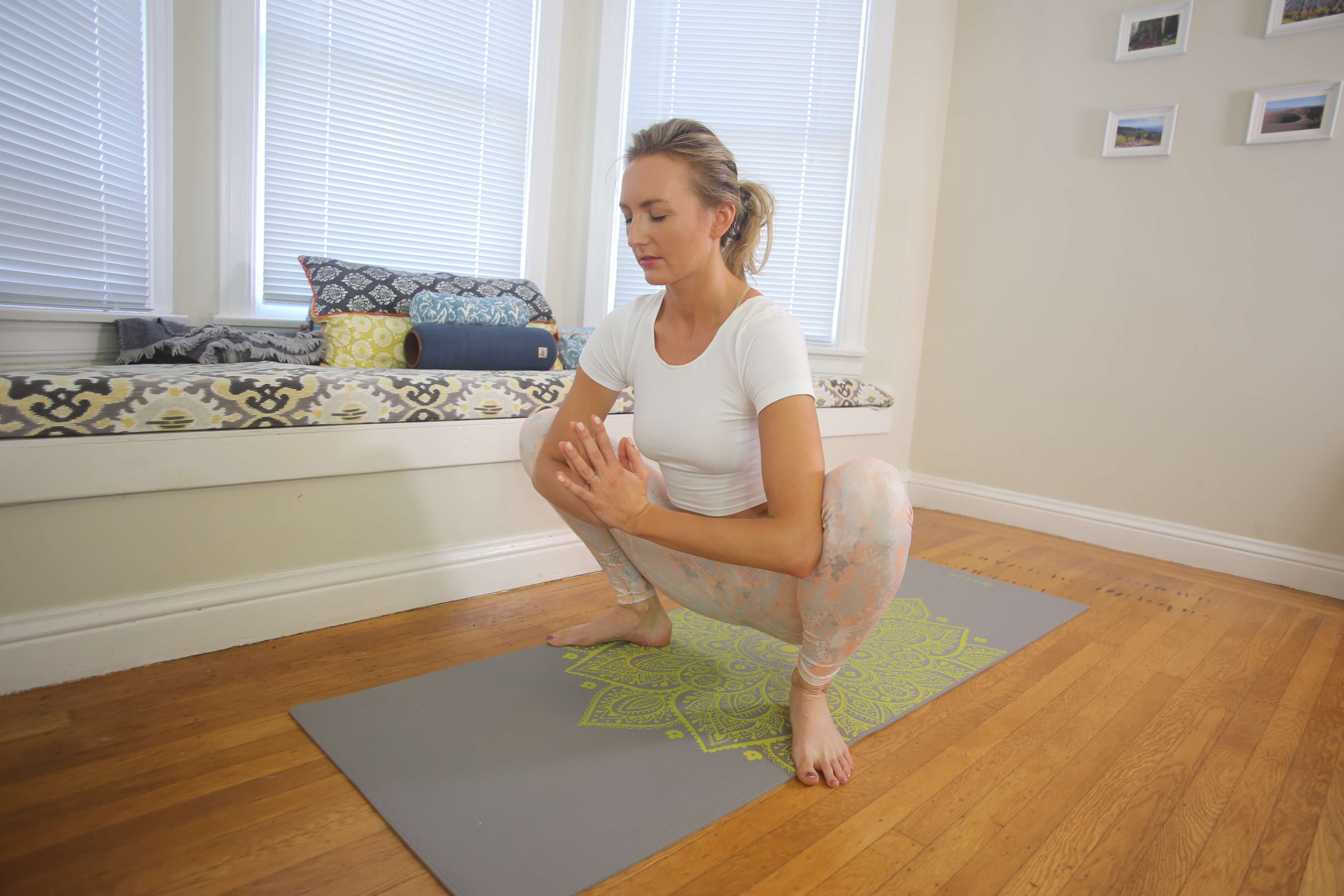
From a standing position walk the feet wider than the mat, toes pointed out. With your hands in prayer position, lower your hips all the way to a squat. Press your elbows into your knees. Invite pranayama into the body while you sit nice and tall.

4. Cobbler’s Pose – Baddha Konasana
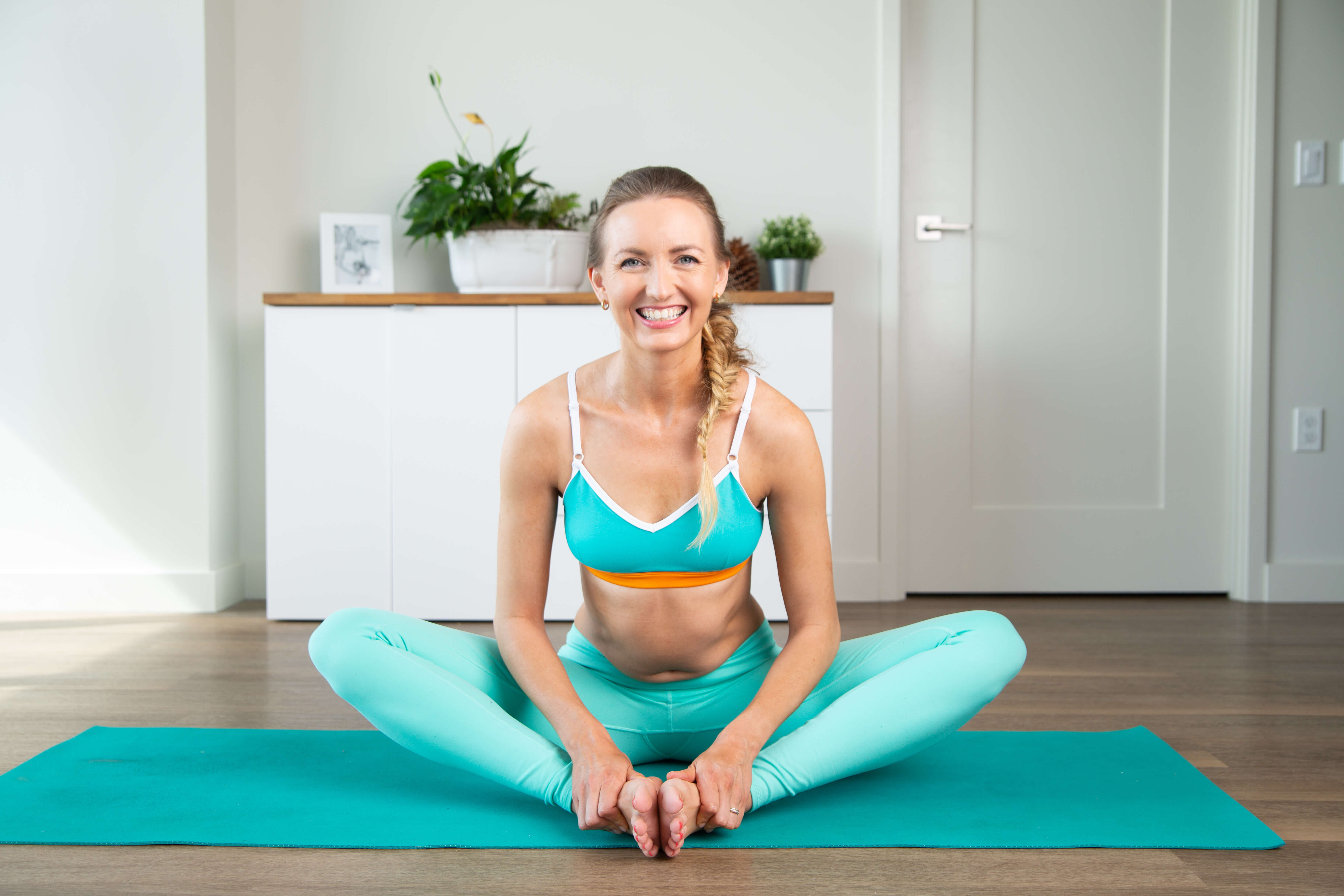
Begin in a seated position. Bend your knees and draw your feet together. Bring your left hand, and right hand to your feet. Find a seated forward bend while you hold your feet like a book.
5. Bow Pose – Dhanurasana
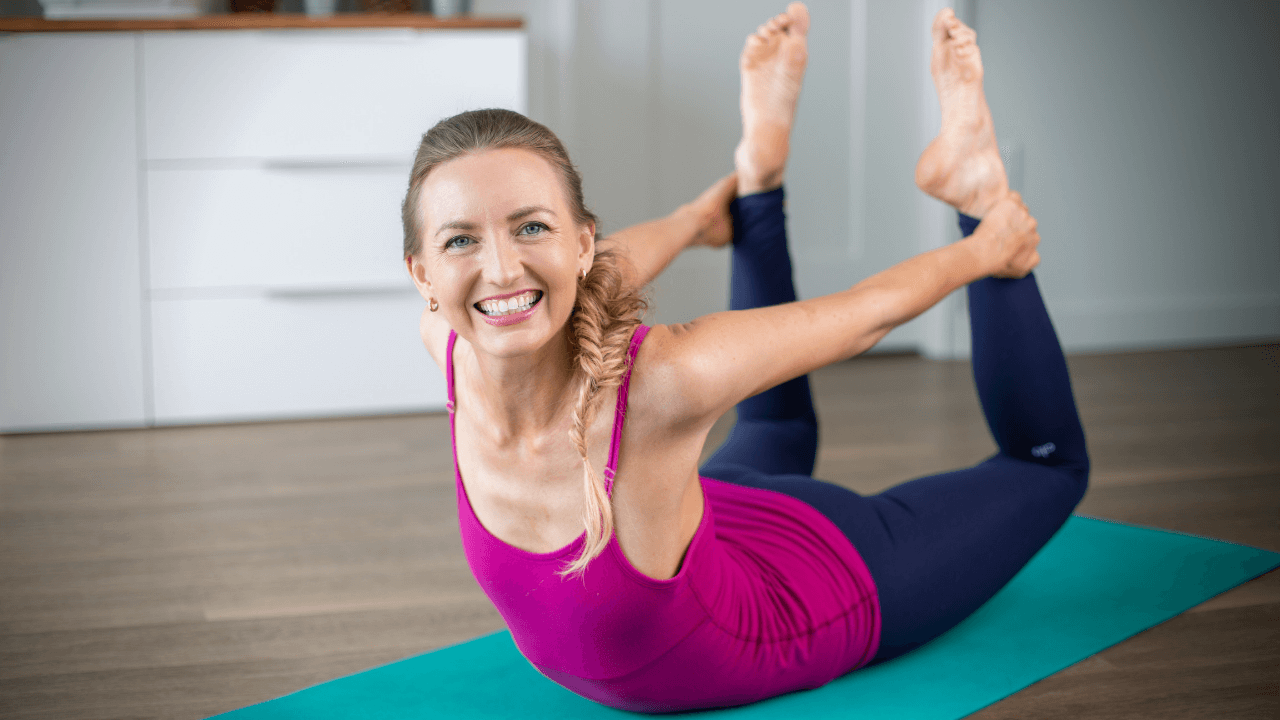
Begin on your belly. Reach your right hand back to grab your right foot or ankle. Reach your left hand back to grab your left foot or ankle. Press your pelvis forward and down. Lift your body as you balance on your pelvic floor. Continuously press your shins back while you open across your chest. Find some movement, or stay steady for 5-8 breaths.
6. Half Spinal Seated Twist – Ardha Matsyendrasana
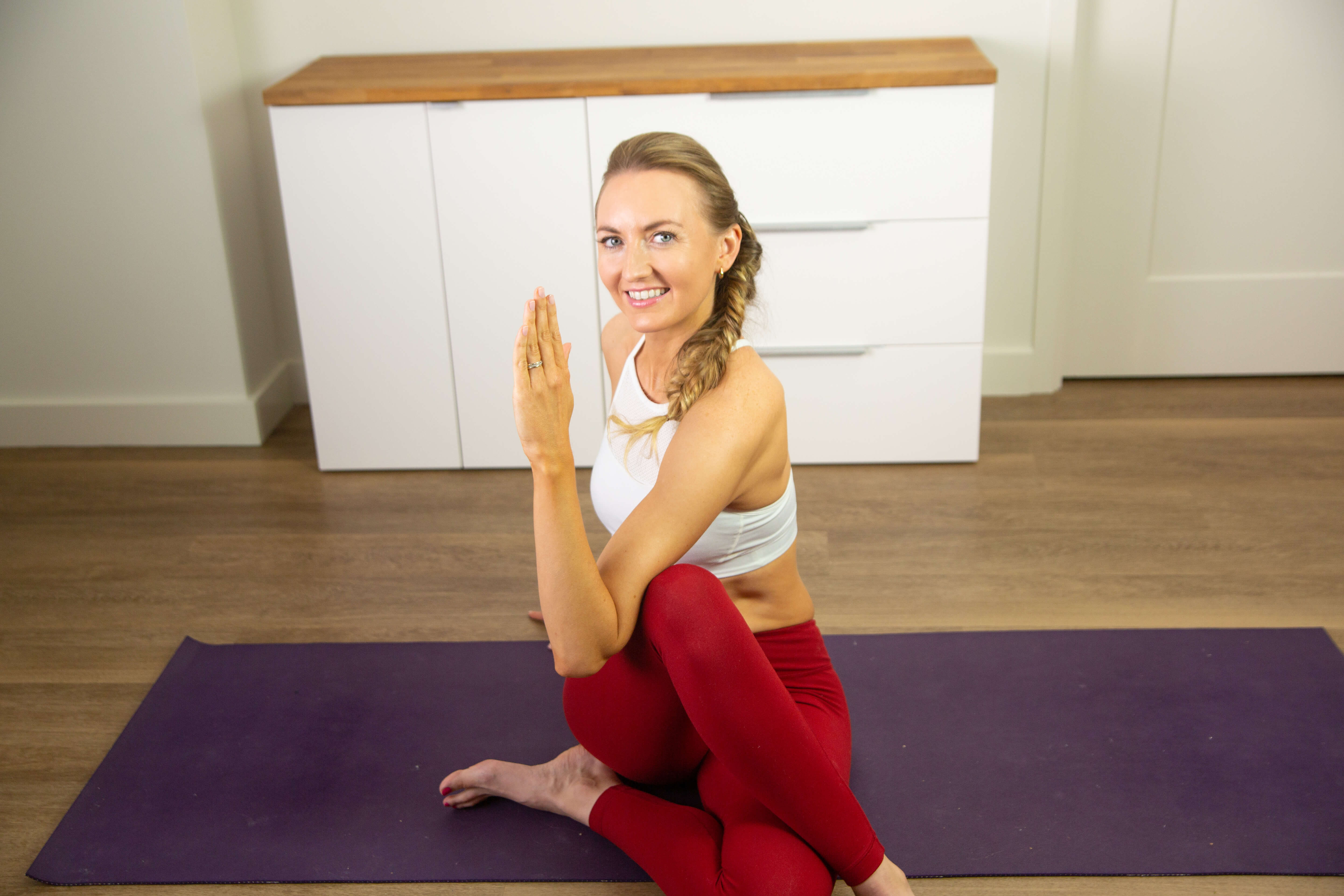
Begin with legs stretched straight out & feet together. Cross your left knee over the right. Root the foot and draw the knee in towards the chest while wrapping your right elbow around the knee. Keep your right knee on the ground but put a bend in the knee. Pull the right activated foot as close to the left buttock as possible. Place the left hands behind the body while twisting open to the left.
7. Bounded Lunge Twist – Parivrtta Baddha Anjaneyasana
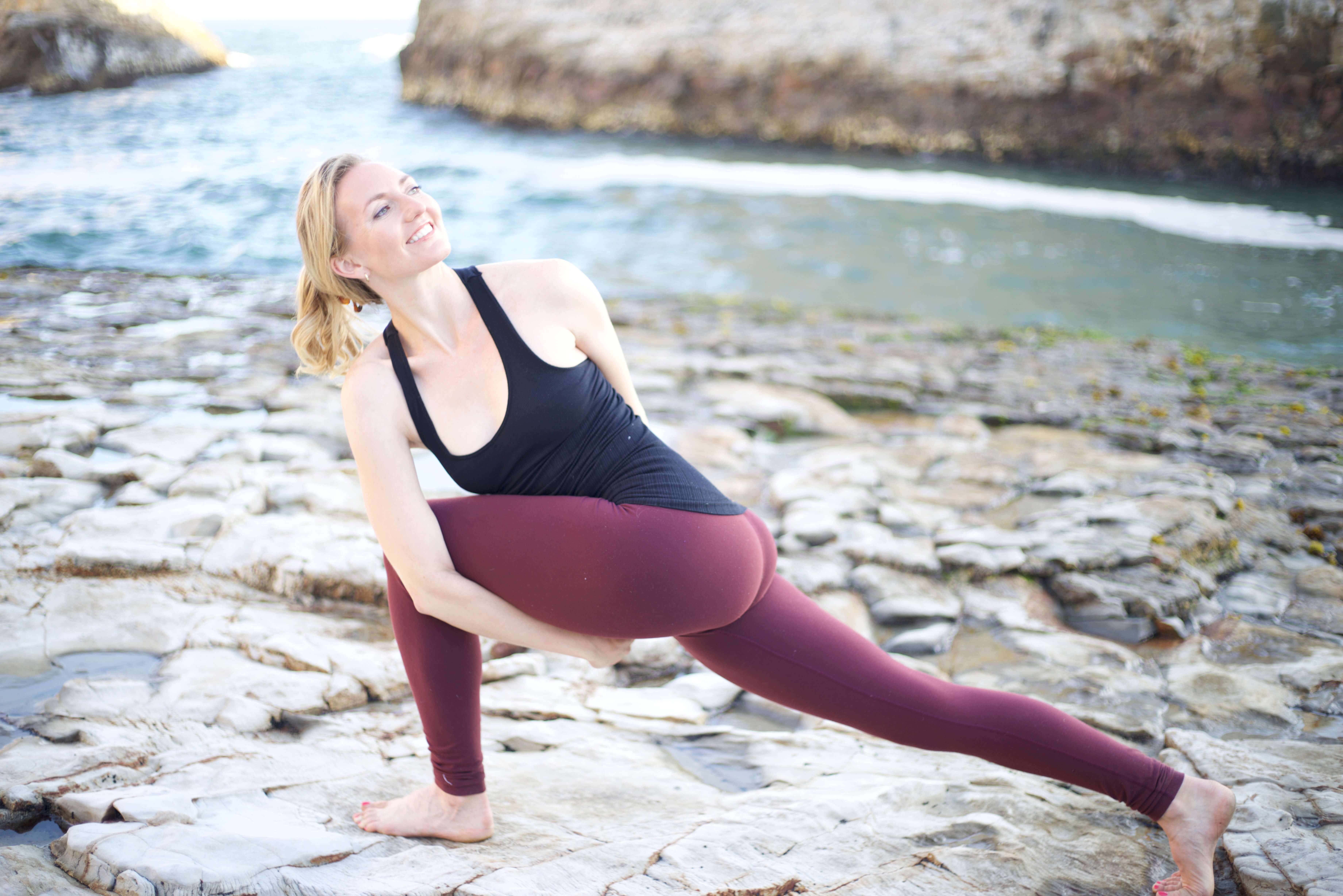
Begin in crescent lunge with the left leg forward. Pull the torso forward toward the left leg. Start to open the body up towards the left. Wrap the left arm behind the back & under the body. Wrap the right arm under the left thigh. Connect the hands together.
Next Steps
- If you’re interested in practical kriya yoga as a way to improve your daily life and relationships, check out my Yoga for Self Mastery course.
- Order my Yoga Life book for a practical guide to creating balance in your life through yoga.
- Check out my YouTube channel and find some yoga classes that you can try out for yourself!
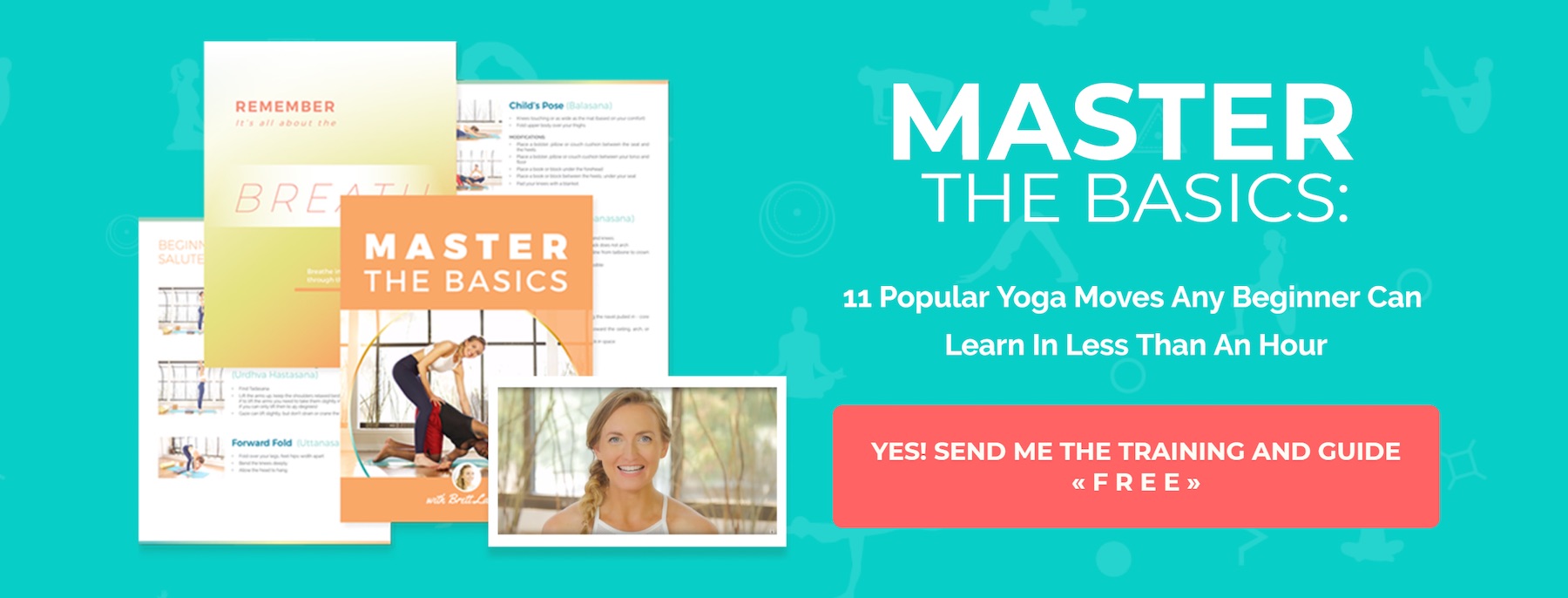
Learn how to do 11 of the most popular yoga poses correctly. Free video + PDF download.
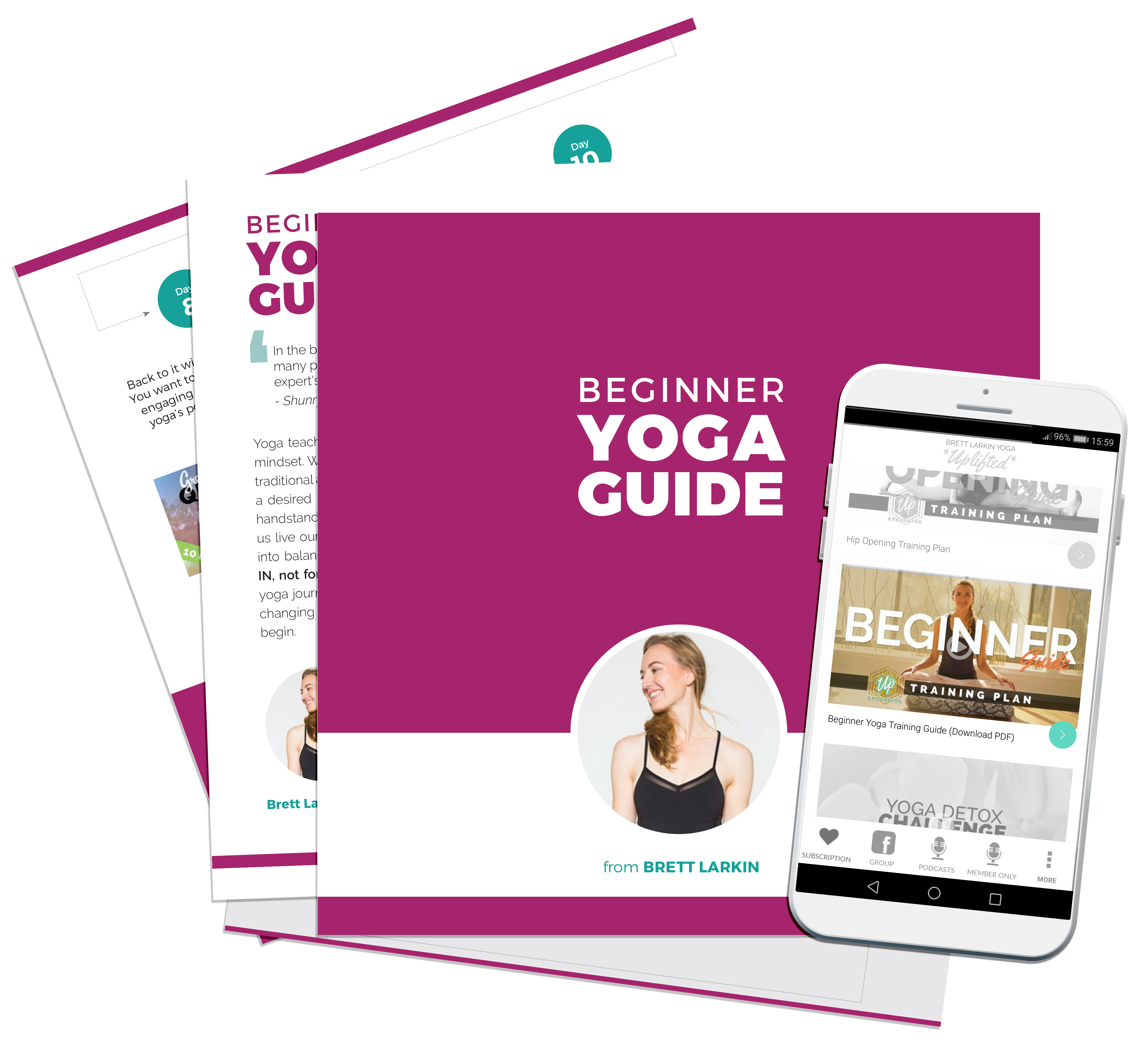
Find more yoga sequences by benefit.
YOU MIGHT ALSO LIKE
- How to Teach Somatic Yoga: A Practical Guide for Instructors
- The Best Somatic Exercises for Grief: Find Healing Through Movement
- The Best Somatic Exercises for Anger Management and Emotional Release
- Authentic Pathways: Connecting With Higher Self for Inner Peace
- Yoga to Reconnect with Yourself: 5 Essential Practices for Inner Peace
- Yoga for Connection: 10 Poses to Deepen Relationships and Bonding
- Yoga To Connect With Your Body For Mind-Body Harmony
- Yoga to Connect with Feminine Energy: 5 Transformative Practices
- Yoga to Connect with Your Heart: 3 Poses for Emotional Balance
- Myofascial Release Yoga: Unlock Tension and Improve Flexibility
- 6 Hip Openers For Emotional Release
- Office Yoga: 10 Poses You Can Do Right Now
- Ayurveda Food Combining: The Key to Balanced Digestion
- Yoga For Grief: 8 Yoga Poses For Support
- Yoga for Vata Dosha: Practice Poses and Tips
Learn how to do 11 of the most popular yoga poses correctly. Free video + PDF download.

